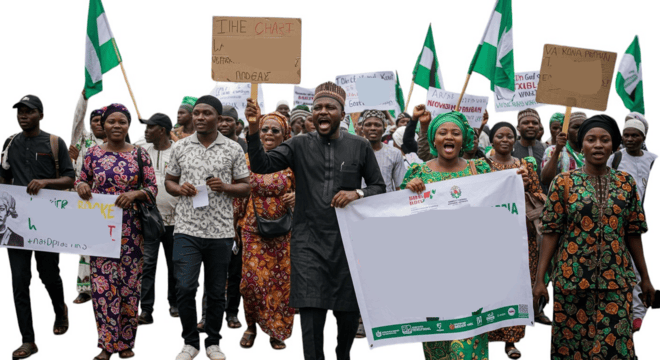
The Constitutional and Political Implications of Mass Defections to the APC in Nigeria
Abstract
The recent surge in defections of high-profile political figures to the All Progressives Congress (APC), Nigeria’s ruling party, raises critical constitutional, legal, and democratic concerns. This article examines the legal framework governing defections in Nigeria, the loopholes exploited by defectors, and the broader consequences on political accountability, party democracy, and the rule of law. While party-switching is not new in Nigeria, the scale and frequency of recent movements warrant a more robust legal and institutional response.
1. Introduction
Nigeria’s Fourth Republic has been characterized by a fluid and transactional political culture, where party loyalty is secondary to access to state power. In recent times, a noticeable pattern has emerged—prominent politicians are defecting en masse to the All Progressives Congress (APC), particularly in the wake of the 2023 general elections. These defections are not ideologically motivated, but often driven by political survival, ambition, and access to privileges associated with proximity to the federal government.
This article interrogates the legal regime governing defections in Nigeria and explores whether the current constitutional and statutory provisions are sufficient to safeguard the sanctity of party politics and democratic accountability.
2. Legal Framework on Party Defections in Nigeria
The principal legal instrument regulating defections in Nigeria is the 1999 Constitution (as amended), specifically Section 68(1)(g) and Section 109(1)(g), which apply to members of the National Assembly and State Houses of Assembly, respectively.
2.1 Section 68(1)(g), 1999 Constitution:
“A member of the Senate or of the House of Representatives shall vacate his seat… if being a person whose election to the House was sponsored by a political party, he becomes a member of another political party before the expiration of the period for which that House was elected:
Provided that his membership of the latter political party is not as a result of a division in the political party of which he was previously a member or of a merger of two or more political parties or factions by one of which he was previously sponsored.”
This provision is replicated in Section 109(1)(g) for state legislators.
2.2 The “Division” Exception
Most defectors invoke the “division” exception to justify their actions. However, the interpretation of what constitutes a “division” has been the subject of judicial clarification.
In Abegunde v. Ondo State House of Assembly (2015) LPELR-24588(SC), the Supreme Court held that:
“The division must be substantial, tangible, and recognizable; not a mere internal wrangling or leadership dispute within the party.”
Despite this clear interpretation, the term continues to be exploited, with defectors alleging “crisis” or “factionalism” within their party to avoid losing their seats.
3. Causes of the Mass Defections to the APC
The legal justification for defections is often a smokescreen. The real motivations can be broadly classified as follows:
3.1 Access to Political Patronage
Defectors are often drawn to the ruling party due to the opportunities it offers—appointments, contracts, immunity from investigation, and control over political machinery. This reality creates a de facto incentive structure that favors alignment with the party at the center.
3.2 Weak Internal Democracy
Many opposition parties are plagued by internal leadership crises, lack of transparency in candidate selection, and the dominance of godfathers. Politicians disillusioned with such systems find a better “negotiation” platform in the APC.
3.3 Pre-Election Positioning
With 2027 in sight, many defectors are repositioning themselves politically to secure nominations or protect their existing seats. The APC provides the platform with the greatest leverage at this time.
3.4 Avoidance of Prosecution
There is a widely held public perception—though unproven—that defection to the ruling party reduces the likelihood of prosecution by anti-corruption agencies. While this is difficult to establish legally, the circumstantial pattern gives credence to this suspicion.
4. Legal and Democratic Implications
4.1 Erosion of Political Accountability
When elected officials switch parties without consequence, they betray the mandate of the electorate, who voted based on party platforms and manifestos. This undermines representative democracy and distorts the electoral mandate.
4.2 Weakening of the Opposition
Democracy thrives on viable opposition. Mass defections to the ruling party weaken dissent, reduce checks and balances, and entrench one-party dominance. This leads to legislative complacency and executive overreach.
4.3 Institutional Complicity
The failure of the Independent National Electoral Commission (INEC) and the courts to enforce constitutional provisions strictly has contributed to the normalization of unlawful defections. Often, political pressure or judicial delays frustrate the process of declaring seats vacant.
5. Reform Recommendations
To curb the abuse of defections and restore integrity to Nigeria’s political system, the following legal and institutional reforms are proposed:
Constitutional Amendment: Remove or clarify the “division” clause to prevent its misuse. Defection should only be allowed if a party has been legally dissolved or merged.
INEC Enforcement Powers: Amend the Electoral Act to give INEC the authority to unilaterally declare seats vacant upon verified defection, subject to judicial review.
Judicial Timeliness: Establish special electoral tribunals or fast-track mechanisms to handle defection-related disputes within a maximum of 90 days.
Mandate Protection Laws: Introduce laws that tie political office more closely to the sponsoring party, particularly for legislative seats and executive positions, making such seats automatically void upon defection.
6. Conclusion
The wave of defections to the APC is more than a political phenomenon—it is a legal and constitutional challenge that tests the resilience of Nigeria’s democratic institutions. Until the legal regime is reformed to reflect the principle of political accountability, defections will remain a recurring feature of Nigerian politics. It is not enough to condemn these actions morally; the law must evolve to protect the sanctity of democratic choice and ensure that elected office is not reduced to a game of convenience.


